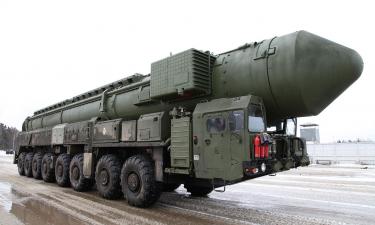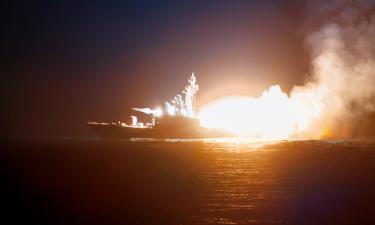Iraq: Three years of failure
Worldwide, millions demonstrate against the Bush regime’s policy in Iraq

Iraq was minding its own business three years ago until the Bush regime had a temper tantrum because a decade of sanctions and acts of terrorism by the USAF were not visibly damaging Saddam Hussein’s Ba’athist government.
What happened next is common knowledge: lies about (we know where they are) WMD, which cost a British expert in this field his life (Dr. David Kelly), and an illegal invasion which has cost the lives of up to one hundred thousand people, sent Iraqi society back into medieval times, destroying women’s rights in the process and which has cost the US taxpayer 400 thousand million dollars of his, his children’s and grandchildren’s hard-earned cash.
For what?
For us to see, three years on, the horrendous state of chaos to which Iraq has descended. This week, US forces were engaged in yet another messy offensive, with yet more stories about women and children being slaughtered in their homes and then there was the greatest air offensive in the war, which petered out with a handful of arrests, apprehension of weapons caches and not a single shot fired, with every day talk of civil war looming on the horizon.
These are examples of an abject and complete failure in policy which is mirrored today by the demonstrations in 200 cities and towns around the world, where millions of people are calling for a stop to the war and a change of direction, starting with a withdrawal of American troops.
The same millions of people called for the war not to start three years ago, before the Bush regime defied the rest of the international community, insulted the UNO by breaching its Charter and then went on to break the Geneva Conventions with those horrific acts of depravity which sent images of Hitler’s concentration camps flashing through the subconscious of billions of shocked onlookers the world over.
With this failure (wholly predictable and predicted in these pages three years ago) goes the credibility of the Bush regime and the United States of America for many years to come. Iraq is the more than a tsunami or an earthquake in US foreign affairs, it is a meteor-strike, right to the core of Washington, straight to the heart of the nation, with collateral rippling through the international community.
The fact that more and more Iraqis state that they were better off under Saddam Hussein is the final slap in the face to the regime of George Bush, whose arrogance and self-righteous callousness created a situation which was wholly avoidable.
The aftershock
The immediate aftershock produces good news and bad news. Starting with the bad – the hundred-odd UK families, the thousand-odd US families, and the hundred-thousand-odd Iraqi families who mourn their loved ones are the immediate tragic consequence of the mistake, while the medium-term effect will be the misgivings and suspicion as to Washington’s intentions in its foreign policy before time and memory play their games, while in the long term, it becomes ever more obvious that a chasm has been created where none existed before and that the entire region, already walking a tightrope, has been sent spiralling out of control.
The common sense and good-natured stability of the Iraqi people, who lived together in mutual respect has been pushed to breaking point, with the result that nowadays being a Sunni or a Shia is an issue where before it was a question of private choice. Women’s rights have been wiped off the slate in one fell swoop, with the institution of the pseudo-democratic government which is in fact no more than a bunch of reactionary political and religious activists from the fringes of Iraqi society, hurriedly gathered together in London before the “war” and then unleashed on the unsuspecting Iraqis, who had no idea as to who or what they were voting for.
The good news, if there is any, is for those producing oil, since the Bush regime’s policies keep the prices soaring. With Washington making a monumental fool of itself, over-stretching its forces, humiliating itself in front of the international community as its foreign policy is derided from Adelaide to Athens, from Bolivia to Belgrade, from Canton to Cape Town, the one who stands to gain most in the immediate term is curiously the Russian Federation.
Timothy Bancroft-Hinchey
Discuss this article on Pravda.Ru English Forum
Subscribe to Pravda.Ru Telegram channel, Facebook, RSS!





